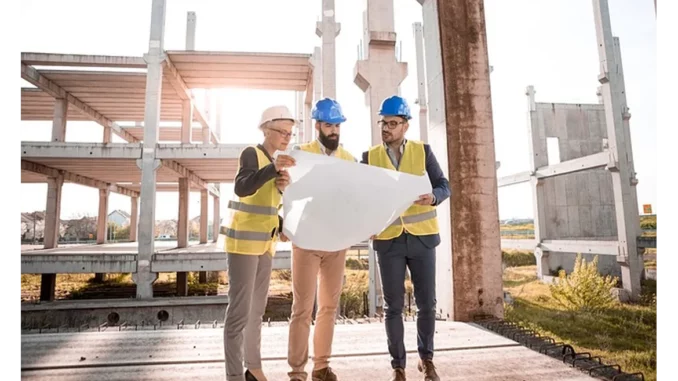
In an era where technology seamlessly integrates into our daily lives, smart buildings—also known as intelligent or automated buildings—are no longer futuristic concepts but are rapidly setting new standards in construction and building management. To delve deeper into this fascinating evolution, I recently engaged with Emily Parker, a senior consultant at a global smart building solutions firm. Our dialogue illuminated the dramatic transformation occurring in the smart building sector across various nations, including the United States, Germany, China, the UK, and Japan.
Successful low-energy building design hinges on careful planning. Focus360 Energy can help.
“Smart buildings are fundamentally altering our perceptions and interactions with built environments,” Emily began. “These structures harness a variety of technologies designed to enhance efficiency, comfort, and sustainability.” The smart building market is poised for significant growth, with projections suggesting it will exceed USD 165 billion by 2029, driven by a compound annual growth rate (CAGR) of 10.80%.
In North America, particularly the United States, the transformation is most pronounced. “The emphasis on energy efficiency, sustainability, and the integration of IoT and AI in building management systems is driving market growth,” Emily explained. Both commercial and residential sectors are increasingly demanding smart building solutions, influenced by regulations such as LEED certification and various initiatives aimed at reducing carbon emissions. “Smart buildings in the U.S. are equipped with automated systems for lighting, HVAC control, security, and energy management,” she noted. These advancements not only contribute to operational cost savings but also enhance occupant comfort.
Turning to Europe, Germany stands out as a leader in the smart building market. “Germany’s strong industrial base and commitment to sustainability make it a key player,” Emily said. The country is heavily influenced by stringent energy efficiency regulations, such as the Energy Performance of Buildings Directive (EPBD), which mandate the integration of smart technologies to reduce energy consumption and carbon emissions. The focus in Germany is on integrating renewable energy sources, advanced building management systems (BMS), and AI-driven analytics to optimise building performance. “The result is a mature and sophisticated market with strong adoption across various sectors,” Emily added.
In the Asia-Pacific region, China and Japan are at the forefront of the smart building movement. “China’s government push for smart cities is driving the adoption of smart building technologies in both new constructions and retrofits,” Emily shared. The scale and speed of urbanisation in China are unparalleled, creating immense opportunities for smart technologies. Japan, renowned for its technological prowess, is also making significant strides. “Japan focuses on integrating AI and IoT into building management systems, emphasising efficiency and innovation,” she said. This approach results in not just smart buildings but incredibly intelligent ecosystems that adapt to the needs and behaviours of their occupants.
Back in Europe, the United Kingdom is another significant market for smart buildings. “The UK is investing heavily in retrofitting existing buildings with smart technologies,” Emily explained. This drive is propelled by regulatory pressures as well as a desire to improve energy efficiency and sustainability. The UK’s smart building market prioritises integrating advanced building management systems and AI-driven analytics. “The goal is to optimise building performance and reduce environmental impact,” she said. “It’s about creating buildings that are not only smart but also green.”
One of the most compelling aspects of smart buildings is their scalability and adaptability. “Smart building systems are inherently modular, allowing for seamless integration with existing infrastructure and future upgrades,” Emily noted. Whether retrofitting existing buildings or designing new constructions, the technology facilitates customisation and evolution over time. While the initial investment in smart building technology may be substantial, the long-term benefits far outweigh the costs. “Energy savings, reduced maintenance expenses, and increased property value result in a favourable return on investment for building owners and stakeholders.”
As our conversation drew to a close, Emily reflected on the challenges and opportunities within the smart building market. “One of the key challenges is the complexity of deploying and integrating smart building solutions within diverse built environments,” she said. This requires extensive customisation, integration, and optimisation to meet the unique needs and specifications of each building. However, she remained optimistic about the future. “The surge in the adoption of smart buildings is driven by the growing need for better utilisation of building resources and improved resource management in urban environments,” she concluded. “The future of smart buildings is bright, with continuous innovations and advancements paving the way for more resilient and sustainable cities.”
From our discussion, it is evident that smart buildings represent a transformative force reshaping the construction and building management landscape. As nations like the United States, Germany, China, the UK, and Japan continue to pioneer and adopt these technologies, the future of our urban environments looks incredibly promising. Through enhanced efficiency, comfort, and sustainability, smart buildings are set to become the new standard in our urban landscapes.


Be the first to comment